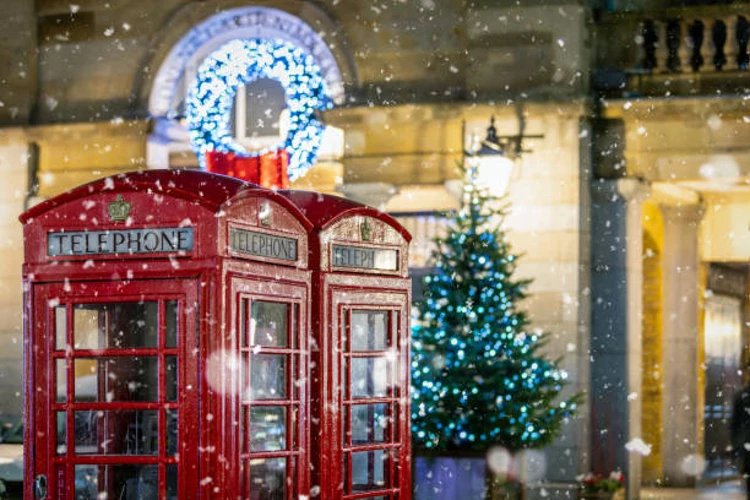What are some tips for traveling from America to Britain?
Traveling from America to Britain can be an exciting and enriching experience, but it is important to plan ahead and consider a few key factors. Here are some tips for making the most of your trip:
- Plan your itinerary in advance: Before you leave, make sure you have a clear idea of what you want to see and do in Britain. This will help you make the most of your time and budget.
- Consider the cost of travel. Britain can be an expensive destination, so it’s important to budget accordingly. Look for deals on flights and accommodations, and consider alternative options such as trains or buses.
- Research the best places to visit: Britain is home to many iconic and historic sites, such as London’s Big Ben and Buckingham Palace, Stonehenge and Edinburgh Castle.
- Make sure you have the right documents: American citizens need a valid passport to enter Britain. Make sure your passport is up to date and will not expire during your trip.
- Prepare for the weather. Britain’s weather can be unpredictable, so it’s a good idea to pack layers and be prepared for rain.
- Get travel insurance: Travel insurance can provide peace of mind and help cover unexpected expenses.
- Learn about the local culture: Before you go, take the time to learn about British customs and etiquette. This will help you feel more comfortable and make the most of your trip.
Overall, traveling from America to Britain can be a wonderful and memorable experience. With proper planning, budgeting and research, you can make the most of your time and enjoy all that this beautiful country has to offer.
Which cities in Great Britain have a better weather?

Britain is known for its unpredictable weather, but some cities tend to have better weather than others based on the seasons.
Spring
Cities in the south of England such as London, Bristol and Brighton tend to have milder temperatures and less rain during the spring months of March, April and May. Average temperatures during this time range from 8 to 14 degrees Celsius and rainfall is usually around 50-60mm per month.
Summer
Coastal cities such as Bournemouth and Eastbourne in the south of England are known for their sunny summers. The average temperature during the summer months of June, July and August is around 18-25 degrees Celsius. Rainfall is also low during this time with an average of 40-50mm per month.
Autumn
Cities in the south of England such as London and Bristol tend to have milder temperatures and less rain during the autumn months of September, October and November. Average temperatures during this time range from 8 to 14 degrees Celsius and rainfall is usually around 50-60mm per month.
Winter
The south of England and the west coast, such as Plymouth and Southampton, tend to have milder winters with lower levels of snow and frost compared to northern cities such as Edinburgh and Glasgow. Average temperatures during the winter months of December, January and February range from 2 to 6 degrees Celsius and rainfall is usually around 60-70mm per month.
When planning your trip, it’s important to keep in mind that the weather can change rapidly and it’s always best to be prepared for all types of weather.
What are the most interesting things about the Britain culture for tourists?

Britain is known for its rich history and culture, and there are many interesting things for tourists to discover and experience.
- History and Heritage: One of the most striking things about Britain’s culture is its rich history and heritage. Tourists can visit famous historical sites such as Stonehenge, Hadrian’s Wall, and the Tower of London, as well as historic castles and palaces such as Windsor Castle, Edinburgh Castle and Buckingham Palace.
- Museums and Art: Britain is home to some of the world’s most famous museums and galleries, including the British Museum, the National Gallery, and the Tate Modern. These institutions house a vast collection of art and artifacts from around the world, and offer a window into Britain’s past and present.
- Food and Drink: British cuisine has come a long way in recent years and offers a diverse range of options. From traditional pub grub to Michelin-starred restaurants, visitors can enjoy a variety of flavors and culinary experiences. Some of the most popular dishes include fish and chips, roast beef and Yorkshire pudding, and shepherd’s pie.
- Literature and Theater: Britain has a rich literary tradition and is home to some of the world’s most famous writers and poets, including Shakespeare, Dickens, and J.K. Rowling. Visitors can explore the cities and towns where these writers lived and worked, and attend performances of their plays and musicals.
- Shopping: Britain is known for its shopping, from the luxury boutiques of London’s West End to the traditional markets of cities like Bristol, Leeds and Liverpool. Visitors can find everything from high-end designer clothing to vintage and antiques.
- Festivals and Events: Britain is home to a wide variety of festivals and events throughout the year, from the Edinburgh Fringe to the Notting Hill Carnival. These festivals offer an opportunity to experience the country’s vibrant culture and tradition.
- Weather: Britain’s weather is famous for its unpredictability, but it is generally mild with temperate climate. The best time to visit, weather wise, is during the summer months (June to August) when the temperature is warm and there is less rain. During the winter months (December to February) the weather can be cold and wet, with occasional snowfall.
How much money do i need to travel to Britain?
When planning a trip to Britain, it’s important to budget for the cost of accommodation, transportation, food, and activities. The cost of accommodation can vary greatly depending on the type of lodging you choose. A budget-friendly option would be to stay in hostels or budget hotels, while more luxurious options include 5-star hotels and vacation rentals. Prices for budget accommodation can range from £20-£50 per night, while luxury options can cost upwards of £100 per night.
Transportation costs will also vary depending on your mode of transportation and distance traveled. The cost of a train or bus ticket can range from £10-£50, while a round-trip flight can cost anywhere from £100-£300. Public transportation in Britain, such as buses and trains, can be relatively expensive, so renting a car or using ride-sharing services may be more cost-effective.
Food costs in Britain can also vary depending on where you eat and what you order. Eating out at a budget-friendly restaurant can cost around £10-£15 per meal, while a more upscale restaurant can cost £20-£40 per meal. Grocery store prices are similar to those in the United States, with a week’s worth of groceries for one person costing around £50-£70.
When it comes to activities, popular tourist attractions such as museums and historical sites can cost anywhere from £5-£20, while theme parks and other entertainment venues can cost upwards of £30.
It’s also important to budget for any additional expenses such as travel insurance and currency exchange fees. A rough estimate for a budget trip to Britain for one person for one week would be around £700-£1000 ( $1000 – $1350), while a more luxurious trip could cost upwards of £2000 ($2700). It’s always best to research and compare prices in advance to ensure you have a clear understanding of the costs associated with your trip.Regenerate response








